After America leaves Afghanistan
The U.S. military mission in Afghanistan will soon come to an end. What's next for the region?

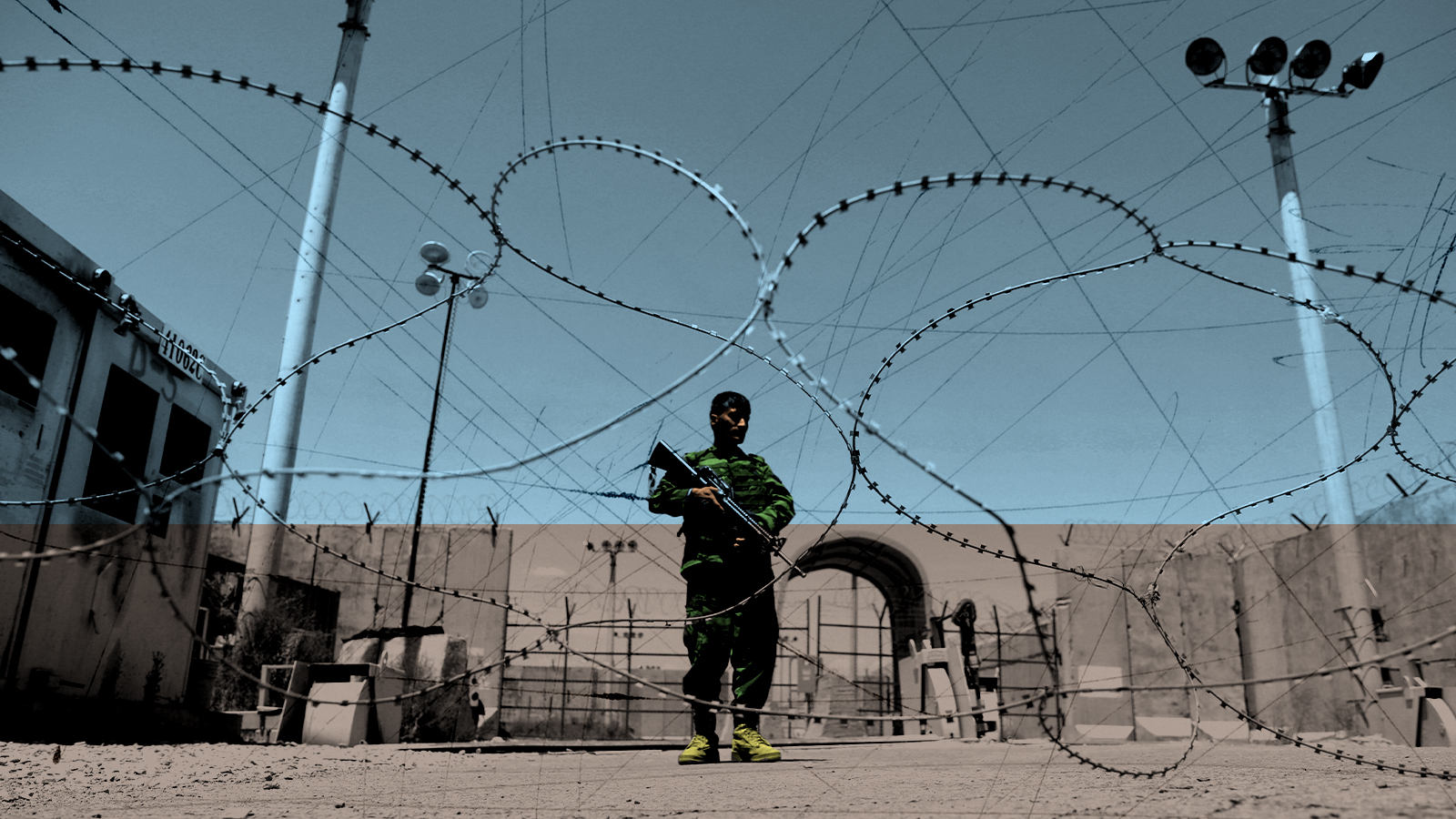
A free daily email with the biggest news stories of the day – and the best features from TheWeek.com
You are now subscribed
Your newsletter sign-up was successful
President Biden announced that nearly 20 years after the war in Afghanistan started, the U.S. military mission in the country will conclude on Aug. 31. Here's everything you need to know.
Why did the U.S. invade Afghanistan?
The conflict began in the wake of the Sept. 11, 2001, attacks, carried out by members of the terrorist group al Qaeda. The organization and its leader, Osama bin Laden, were protected in Afghanistan by the Taliban, a radical Islamist group that controlled a majority of the country. When the Taliban refused to turn bin Laden over to the United States, the first U.S. airstrikes were launched in Afghanistan. Over two decades of fighting, thousands of U.S. troops killed, and trillions of dollars spent, the Taliban was never fully defeated, and since May its members have been sweeping across northern Afghanistan, seizing control of key districts along trade routes.
The Week
Escape your echo chamber. Get the facts behind the news, plus analysis from multiple perspectives.

Sign up for The Week's Free Newsletters
From our morning news briefing to a weekly Good News Newsletter, get the best of The Week delivered directly to your inbox.
From our morning news briefing to a weekly Good News Newsletter, get the best of The Week delivered directly to your inbox.
Why is the Taliban moving so fast?
It's about controlling a strategic swath of land, as well as money. There are more than 400 local government districts in Afghanistan, which are comparable to U.S. counties. American and NATO troops began leaving Afghanistan on May 1, and over the subsequent two months, U.S. officials say the Taliban has taken control of at least 100 districts. Taliban fighters were emboldened when American troops left the massive Bagram Airfield and turned the base over to the Afghan military, seizing dozens of districts in the weeks since. It has focused on quickly taking land along the border with Tajikistan near major roads, cities, and border crossings that are part of a supply route from central Asia. Border crossings in particular bring in tens of millions of dollars in revenue, and Taliban spokesman Suhail Shaheen said the militant group will now collect this money because "it is our area."
How soon might the Afghan government fall?
Once the military withdrawal from Afghanistan is complete, the Afghan government could collapse within six months, according to a U.S. intelligence analysis. Deborah Lyons, the United Nation's special representative for Afghanistan, told the United Nations Security Council that most of the districts being taken by the Taliban surround provincial capitals, "suggesting that the Taliban are positioning themselves to try and take these capitals once foreign forces are fully withdrawn." Gen. Austin "Scott" Miller, the top U.S. commander in Afghanistan, told ABC News' This Week the security situation is "not good," saying he's "concerned" over how fast the Taliban has been able to capture districts, and how this could demoralize Afghan troops. Both Miller and Army Gen. Mark Milley, chairman of the Joint Chiefs of Staff, have warned that the worst case scenario, civil war, is a possibility. "That should be a concern to the world," Miller said.
A free daily email with the biggest news stories of the day – and the best features from TheWeek.com
Are Afghan troops and police officers fighting back?
Many are, and Afghan security forces have been able to retake some districts. Others quickly surrender to protect themselves, with a senior police official telling The Associated Press that most of the officers fighting in these northern districts are from poor families, who are not making much and did not benefit from the money the United States spent in Afghanistan. "They have not seen change in their lives and are indifferent so they see no difference," the official said, adding, "They want to save their lives just for today." Some Afghan troops have gone months without being paid, and the Taliban is giving them money to return home, The Washington Post reports. They are leaving behind pieces of equipment supplied by the Americans, like Humvees, which are now being used by the Taliban.
Is Afghanistan asking for any regional help?
Yes, but it's a complicated request. Afghan President Ashraf Ghani believes the Taliban is receiving funding and logistical aid from Pakistan, and his government has asked the country to take "practical steps" to shut down Taliban operations. Pakistan bristles at the accusations, but former Pakistani Ambassador to Afghanistan Ayaz Wazir conceded the country does have a "long-standing relationship with the Taliban," and could try to "bring them to the negotiating table with the Americans." It's in Pakistan's interest to prevent the Taliban from completely taking over in Afghanistan. "We don't want an ideologically extremist government in Kabul that could also encourage Talibanization in Pakistan," Wazir said.
Is the Taliban the only threat?
There are still al Qaeda and Islamic State cells inside Afghanistan, though many are weakened and less hostile than the Taliban. Counterterrorism experts working for the United Nations Security Council released a report in June stating that a "significant part" of al Qaeda's leadership lives along the border of Afghanistan and Pakistan, and many fighters reside inside Afghanistan. ISIS made its way through Afghanistan five years ago, and affiliates are still conducting attacks in Afghanistan against everyone from women's rights activists to members of the media, with one group, IS-K, claiming responsibility for the recent murders of 10 workers with Halo Trust, a charity that clears mine fields. A former Afghan security official told AP that ISIS is actively recruiting people, including radicalized college students and dissatisfied Taliban members.
What is the status of peace talks?
Peace talks could lead to a power sharing agreement between the Afghan government and the Taliban. In February 2020, the United States and the Taliban agreed to a deal where the U.S. would pull all troops out of Afghanistan over the next 14 months, and in return, the Taliban would discuss a ceasefire with the Afghan government and keep al Qaeda and other terrorist groups from using Afghanistan as a home base to plan attacks on the U.S., but discussions stalled last fall over disagreements on prisoner exchanges. A spokesman for the Taliban told Reuters that the group plans on presenting a written peace proposal to the Afghan government as soon as August.
What happens to the Afghans who helped U.S. troops?
About 18,000 Afghans who served as translators, interpreters, and contractors are eligible for a special U.S. visa, and 9,000 have started the arduous application process. Many of these workers report receiving death threats from the Taliban, who accuse them of being spies. There is bipartisan support for helping these workers. Rep. Jason Crow (D-Colo.), a veteran who served in Afghanistan and Iraq, introduced the HOPE For Afghan SIVS Act to streamline the visa application process and make it more inclusive; the bill passed 366-46. Biden has said that "those who helped us are not going to be left behind," but there have been no public statements about where the visa applicants will go while waiting for permission to enter the United States.
Is this the end of all U.S. support to Afghanistan?
The United States has promised to continue humanitarian, economic, and developmental assistance, with Biden asking Congress to approve $3.3 billion in security assistance for Afghanistan. During a visit to the White House in late June, Ghani said he respects Biden's decision to withdraw troops, and called this "a new chapter of our relationship, where the partnership of the United States will not be military, but comprehensive." Biden declared that now is the time for Afghans to "decide their future, what they want. But we're going to stick with you." The U.S. Embassy in Kabul will remain open, with 650 troops expected to provide security for diplomats.
Catherine Garcia has worked as a senior writer at The Week since 2014. Her writing and reporting have appeared in Entertainment Weekly, The New York Times, Wirecutter, NBC News and "The Book of Jezebel," among others. She's a graduate of the University of Redlands and the Columbia University Graduate School of Journalism.
-
 5 cinematic cartoons about Bezos betting big on 'Melania'
5 cinematic cartoons about Bezos betting big on 'Melania'Cartoons Artists take on a girlboss, a fetching newspaper, and more
-
 The fall of the generals: China’s military purge
The fall of the generals: China’s military purgeIn the Spotlight Xi Jinping’s extraordinary removal of senior general proves that no-one is safe from anti-corruption drive that has investigated millions
-
 Why the Gorton and Denton by-election is a ‘Frankenstein’s monster’
Why the Gorton and Denton by-election is a ‘Frankenstein’s monster’Talking Point Reform and the Greens have the Labour seat in their sights, but the constituency’s complex demographics make messaging tricky
-
 Operation Rubific: the government's secret Afghan relocation scheme
Operation Rubific: the government's secret Afghan relocation schemeThe Explainer Massive data leak a 'national embarrassment' that has ended up costing taxpayer billions
-
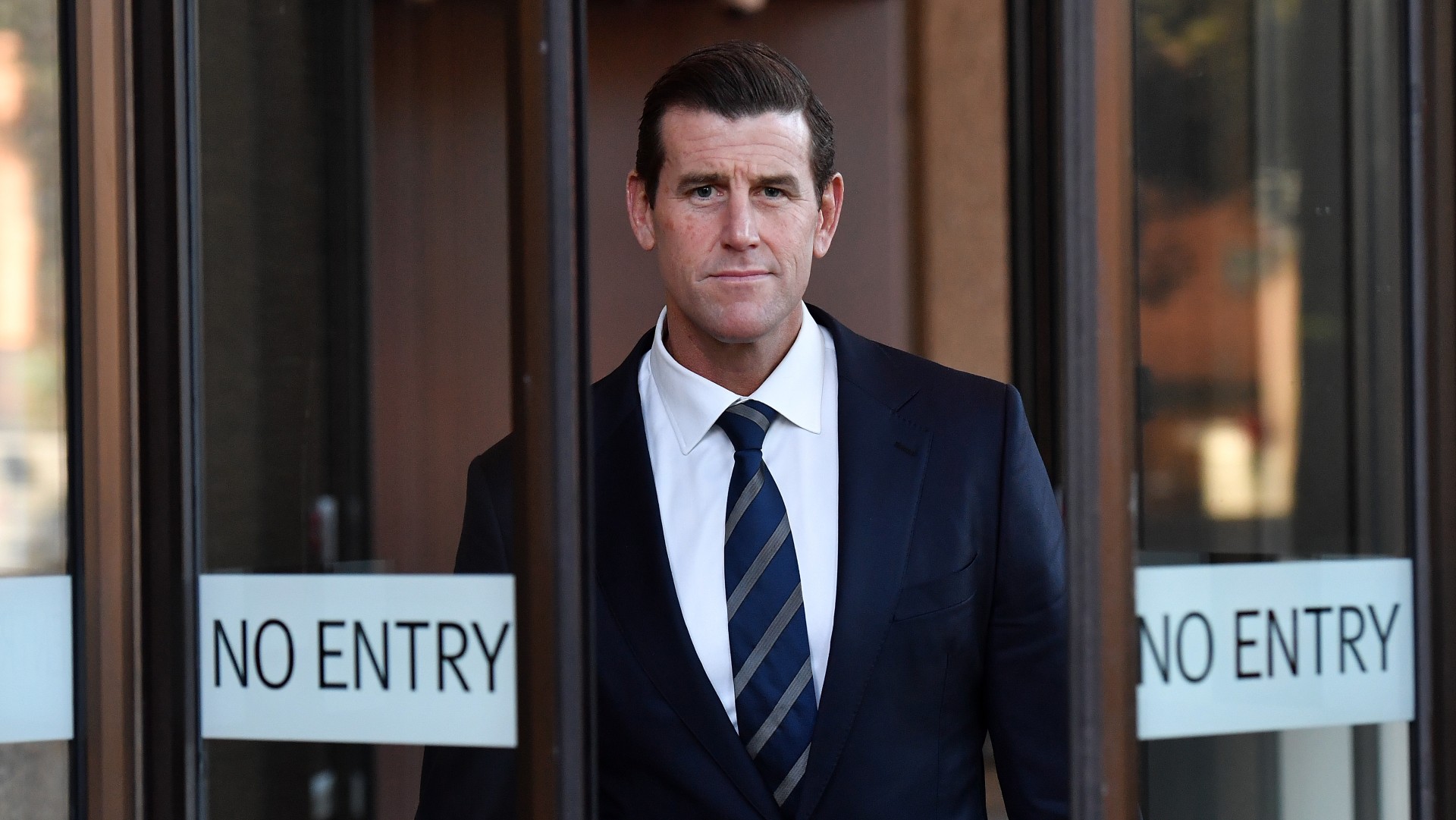 Ben Roberts-Smith: will more Afghanistan war crimes trials follow?
Ben Roberts-Smith: will more Afghanistan war crimes trials follow?Today's Big Question Former SAS soldier lost defamation case against Australian newspapers that accused him of murder
-
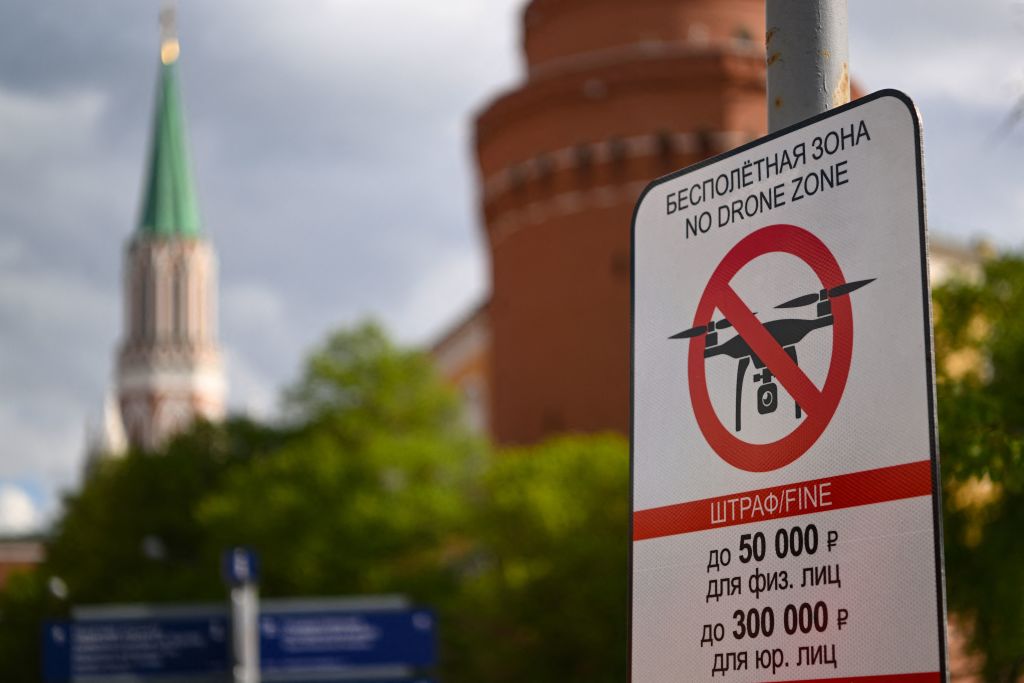 Did Ukraine orchestrate the Kremlin drone strike?
Did Ukraine orchestrate the Kremlin drone strike?Speed Read If Kyiv isn't behind the humiliating attack, who is?
-
 Stealing Ukraine's children
Stealing Ukraine's childrenSpeed Read Vladimir Putin has been charged with war crimes for abducting thousands of Ukrainian children. Why is he doing this?
-
 Russia's shadow army
Russia's shadow armySpeed Read The Wagner Group, accused of numerous war crimes, has sent tens of thousands of mercenaries to fight in Ukraine
-
 The F-35 fighter jet's troubled history
The F-35 fighter jet's troubled historySpeed Read Why 'the most expensive weapon in human history' still can't get off the ground
-
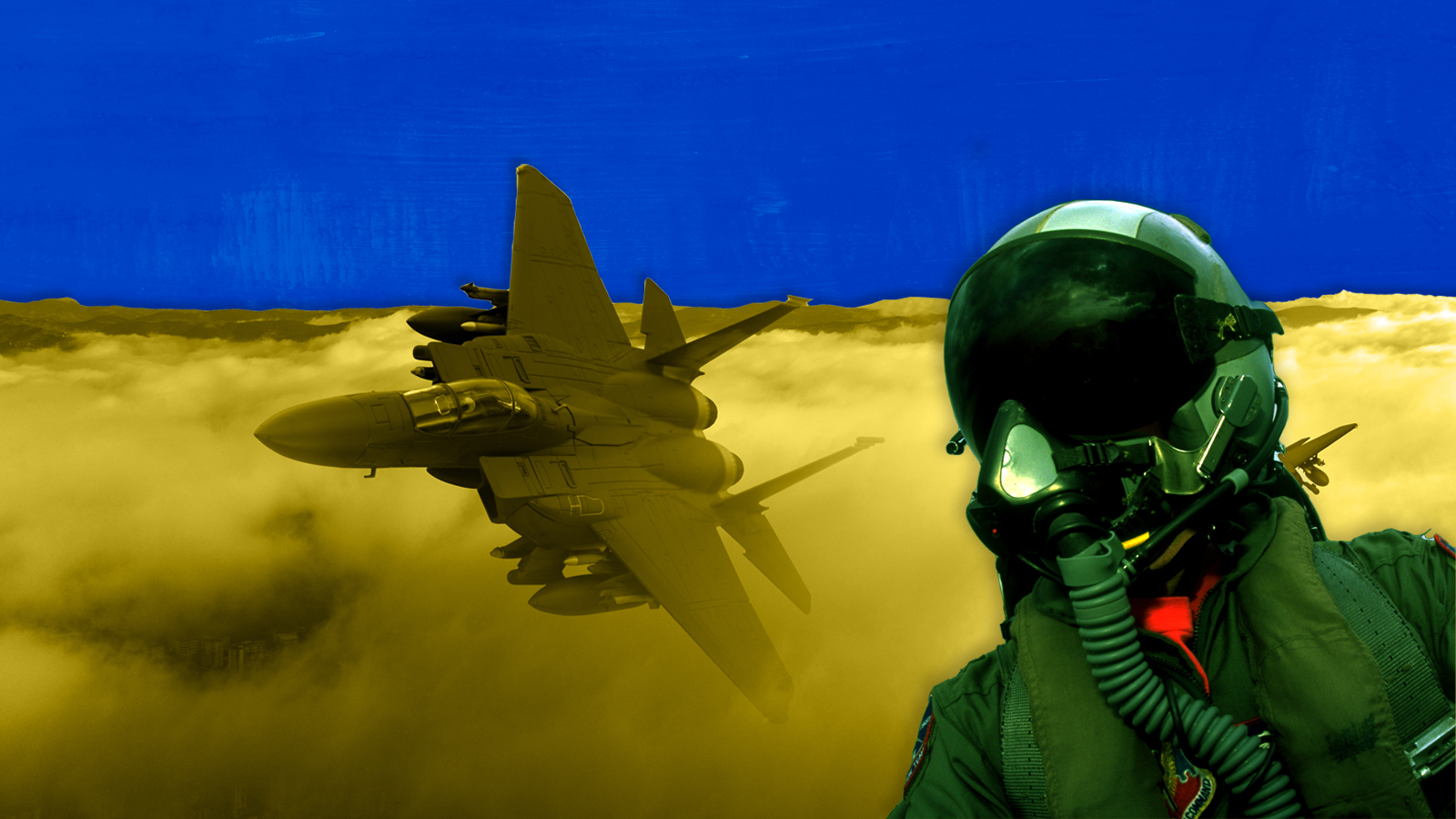 The U.S. gave Ukraine tanks. Are jets next?
The U.S. gave Ukraine tanks. Are jets next?Speed Read How to balance helping Ukraine without triggering a wider war with Russia
-
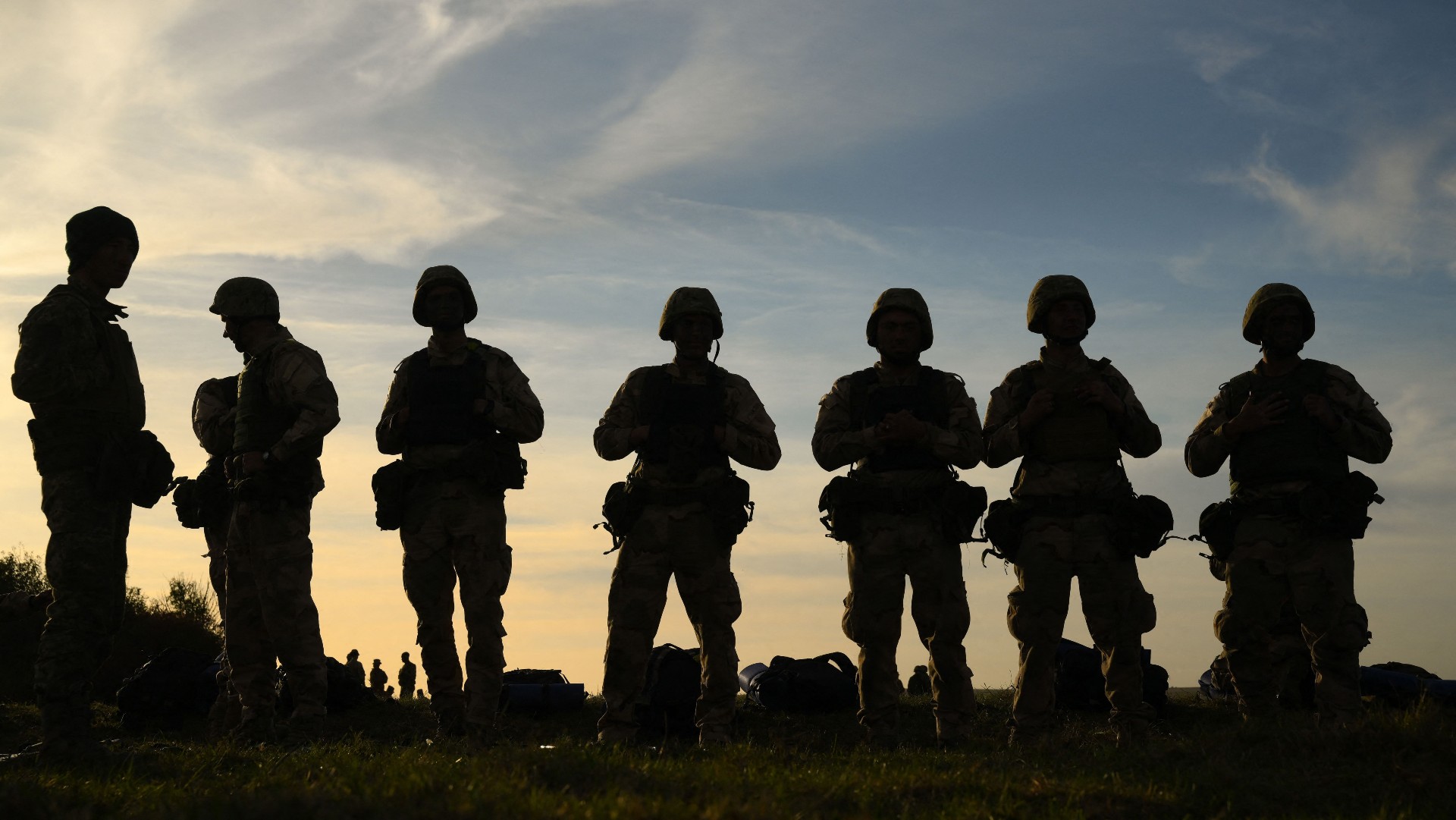 Can the UK rely on the British Army to defend itself?
Can the UK rely on the British Army to defend itself?Today's Big Question Armed forces in ‘dire state’ and no longer regarded as top-level fighting force, US general warns
